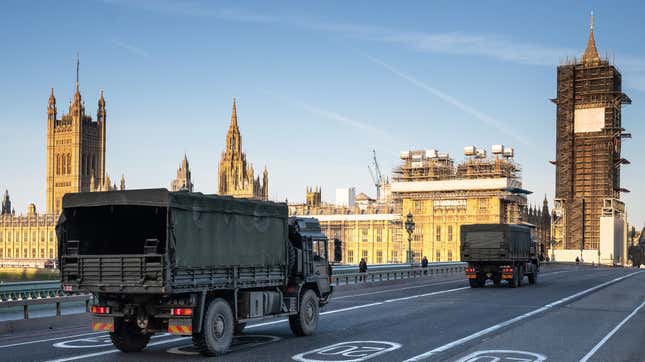
A novel and controversial vaccine trial for covid-19 is officially set to begin in the UK next January. On Tuesday, researchers from the Imperial College London and elsewhere announced that they plan to conduct a human challenge trial that will involve 90 young and healthy adults. These volunteers will be given experimental vaccines and be intentionally infected with the coronavirus that causes covid-19, all while under observation by doctors.
In late September, the Financial Times reported that the UK would allow these trials to begin next year, noting the involvement of Imperial College London and other partners. But no partner confirmed the news on the record; some said that the status of the project was in flux. Now, many of its details have been laid out, though the experiment will still need to be formally approved by an ethics committee.
According to the announcement, the project will recruit and pay volunteers between the ages of 18 and 30. The first phase of the trial will simply try to figure out the smallest possible dose of virus needed to successfully infect someone; subsequent experiments will test out several vaccine candidates. The tests will be conducted at the Royal Free Hospital, with the study expected to last until May, though volunteers will be monitored for a year in full.
Though human challenge trials have long been part of the toolkit of clinical research, including for testing out new vaccines, some scientists have been critical of their potential use for covid-19. Unlike other diseases studied through human challenge trials, much remains unknown how covid-19 can affect even young and healthy people, they’ve argued. And the still widely spreading pandemic ironically reduces the need for challenge trials, which are often used to study diseases that are rare or difficult to track. There are already several vaccines very far ahead in clinical testing, and scientists hope that the large-scale trial results needed to secure regulatory approval for their use will emerge at the end of the year.
However, proponents have argued that these first-generation vaccines, even if successful, may not be the most effective ones that we’re capable of producing, so it’s important to keep developing and testing out potential candidates. And while challenge trials do carry their own unique risks, the opportunity to track the full course of infection in people in a controlled environment is something no other type of study can provide.
“Deliberately infecting volunteers with a known human pathogen is never undertaken lightly. However, such studies are enormously informative about a disease,” said study investigator Peter Openshaw, an immunologist at Imperial College London, in a press release. “It is really vital that we move as fast as possible towards getting effective vaccines and other treatments for COVID-19, and challenge studies have the potential to accelerate and de-risk the development of novel drugs and vaccines.”
The project will be conducted with the help of the UK government as well as the company hVIVO, which has previously worked on human challenge trials. The UK government is expected to spend $43.4 million USD to fund the project, per the AP.